The second day of the Summer Institute 2021 featured presentations by each group of students, showing how they had delved into the issues raised during the lectures on the previous day. Though there was not enough time for them to prepare polished presentations, these nonetheless formed a fitting finale to the two-day event and offered a way for students to think proactively about the issues, work together to produce a single coordinated outcome, and, above all, build friendships. EAA faculty members also attended with high expectations for the students’ efforts.
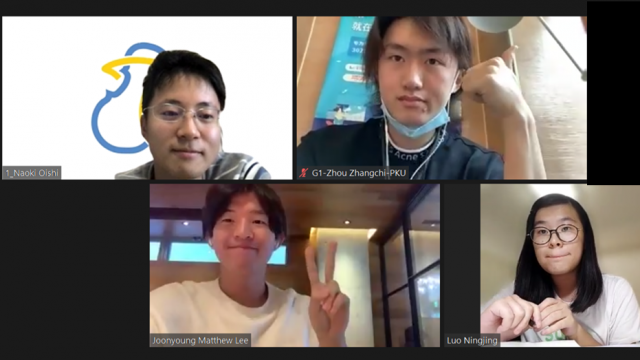
Group One tackled the main theme of the Summer Institute, “Value and Value-ing: Visiblizing (the) Invisible.” They asked: What kind of values do we want to keep, what values do we need to change, how does science help to visiblize veiled harms and values, and what values are invisiblized in the Covid-19 era? Group One’s focus on the positioning and the role of “our generation” in considering these questions was intriguing in that they are real stakeholders facing environmental challenges and international conflicts, and the emergence of a “Covid generation” might directly affect how value systems changes, as Kant stressed, “One generation cannot form an alliance. [. . .] It would be impossible for the latter (generation) to expand its knowledge . . . to rid this knowledge of errors, and, more generally, to proceed along the path of enlightenment.”
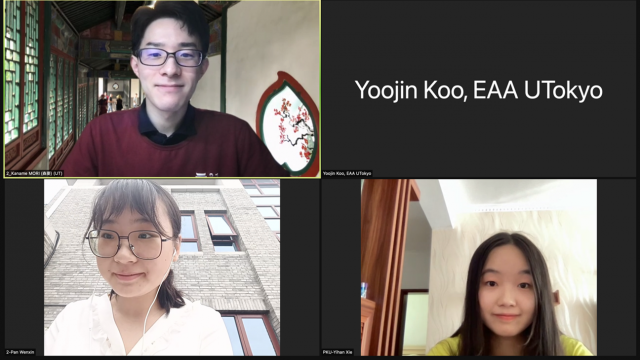
The baton then passed to Group Two, which gave a presentation on “the internet as a common resource” from a comparative perspective (China and Japan, theory and practice). Taking online spaces as an example of Habermas’s “public sphere” and the development of new media into account, the group elucidated the two-fold effects on the current pandemic. The government uses the crisis to push through policies and regulate people’s behavior, though individuals can obtain the information to protect themselves. By discussing privacy issues (e.g., the COCOA app) and fake news about vaccinations through examples in China and Japan, Group Two provided a step forward in understanding the place (i.e., the internet) where private and public discourse overlap to form values, and its potential and constraints.
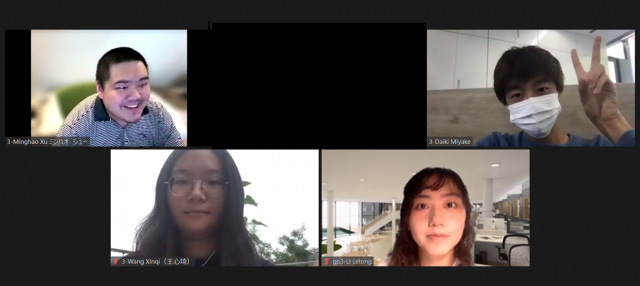
Next, Group Three brought up the topic of “universal value” at two levels—universal and individual—and discussed the possibility of environmental protection as a universal value. As sociological studies and the SDGs have stressed, environmental protection is essential. But can it be a universal value? Group Three considered this in light of subjectivity versus objectivity, and argued that subjective individual values can collectively reach an “assumed” universality. Japanese people and culture (such as Studio Ghibli films) influenced by the Japanese religion Shinto cherishing nature, and personal experiences related to the nature (e.g., visiting places, reading books, encountering a pink dolphin) were just some of the examples illustrating why each individual feels an attachment to nature.
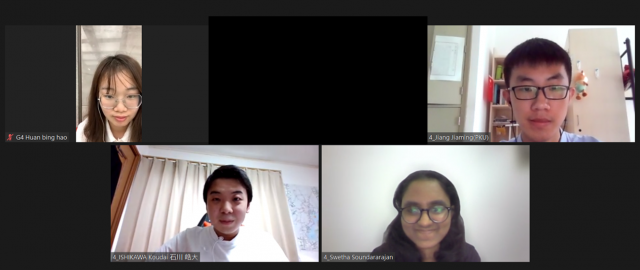
After the break, the presentations continued: Group Four took the discussion into a more varied context by turning to the issue of gender inequality. The group first addressed the current discussion about gender inequality, and then showed how values can be included and excluded to achieve it. For promoting inclusion, education is surely vital, not only in schools but also in terms of more general lifelong learning, while prejudice and violence relate to the problem of exclusion. Interestingly, the group argued that the importance of “invisiblization” signified that gender equality as a value might become invisible only when we truly achieve it.
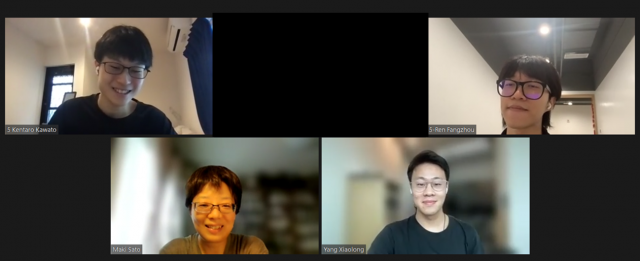
Last but not least, Group Five gave its presentation, which tackled questions of values through recent regional and global issues: the values manifest in Japanese public opinion on the Tokyo Olympics, value and value-ing in terms of nuclear issues, and factors affecting how each nation dealt with the pandemic. The values encompassed in these issues are fiercely competing. The group traced the processes by which values emerge, how they compete, what values remain as consequences, and what factors affect this. First, regarding the issue of holding the Tokyo Olympics, the dominant opinion was against holding them this summer, but this gradually diminished and was replaced by the underlying values stemming from a sense of unity as Japanese, eventually evoking nationalism. Likewise, in the case of nuclear issues, the logic of capitalism sharply competed with environmentalism, creating a set of binary values. The Fukushima accident gives us, in this sense, a clear image of the conflict. Lastly, with regard to the pandemic, each nation’s own institutional arrangements and cultural orientation has shaped its response, implying that there is no one-size-fits-all set of measures. Competition between values, its consequences, and its determinants are worthy of subsequent investigation.
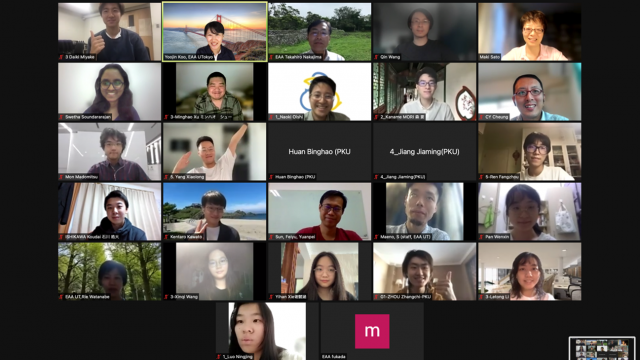
The five presentations were over, but the discussions continued. These were much enriched by the EAA faculty’s questions, such as what each group would like to do to tackle certain issues and how we can elaborate further on the definitions of value and value-ing. Notwithstanding problems with the Zoom links and the short period of time available for preparation, students from PKU and UTokyo pulled it off. As Professor Takahiro Nakajima (EAA Director) and Professor Feiyu Sun (PKU) indicated in their closing remarks, we were very impressed by the students’ discussions and hope that the connections cultivated over the two-day event will grow into sustained friendships in the future.
Reported by Yoojin Koo (EAA Project Assistant Professor)








